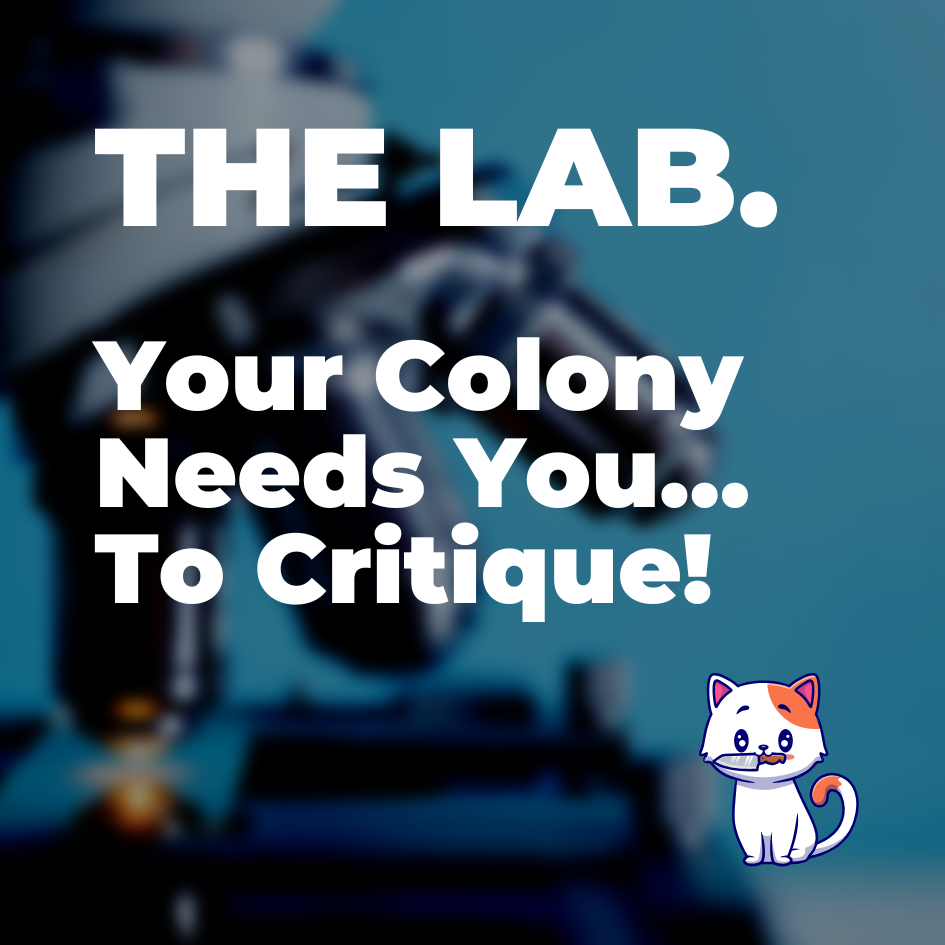Paul Whybrow
Full Member
The most common form of writing that people remember is poetry and song lyrics. Occasionally, learned quotes get spouted out, though few know the source...was it Plato or Charles Dickens? As this happens in real-life, then surely we should have our fictional characters refer to books they're reading, to favourite poems and phrases from songs.
In my chosen writing genre of crime, there are two authors who do this regularly. Walter Mosley's tough guy protagonists Easy Rawlins and Leonid McGill remember situations in novels and song that apply to the investigation they're pursuing. Ian Rankin's crime stories set in Edinburgh, featuring Inspector Rebus, are firmly located in place and time by his hero equating an era and a pub with the music that was playing at the time.
A Vinyl Guy in a Digital World - Ian Rankin
Inevitably, the situation is complicated when it comes to quoting poetry and song lyrics. These are litigious times, and the last thing a penniless author wants is to be sued by some petty-minded corporation who own the publishing rights to a song.
Writing guru Jane Friedman offers some wise advice in this article: A Writer's Guide to Permissions and Fair Use | Jane Friedman
No permission is needed to mention song titles, movie titles, names, etc.
"You do not need permission to include song titles, movie titles, TV show titles—any kind of title—in your work. You can also include the names of places, things, events, and people in your work without asking permission. These are facts."
But: be very careful when quoting song lyrics and poetry
"Because songs and poems are so short, it’s dangerous to use even 1 line without asking for permission, even if you think the use could be considered fair. However, it’s still fine to use song titles, poem titles, artist names, band names, movie titles, etc."
Copyright law may become even murkier, what with the proposed changes coming up for debate in the European Parliament, as we discussed in this thread. We also talked about copyright law six months ago, but it's an issue that won't go away.
This area of writing has become of interest to me, as the protagonist in my Cornish Detective series is a literate and artistic man, who gets inspiration for his investigations from reading and painting and listening to music. In my WIP, he's in emotional turmoil, as he's dating for the first time in eight years after being widowed. This excitement has churned up favourite snippets of poetry from his psyche. As I've written it, I believe I'm not breaking any laws with the first example, since William Blake's work is out of copyright:
'For the moment, sensuality dominated his thoughts. A poem by William Blake came to mind; called 'The Question Answered', it summed up all that mattered for the moment:
What is it men in women do require
The lineaments of Gratified Desire
What is it women do in men require
The lineaments of Gratified Desire'
I reckon I'm on dodgier ground with the next example, as poet Barry Middleton who was born in 1946 is still writing, so his work is protected by copyright law. As my WIP stands, I've written:
'The sea was languid, but revelling in its energy, laving the beach with gentle waves that made the sand gleam like gold dust. Floating on his back, Neil recalled lines from a poem called 'The Sea', written by Barry Middleton:
to bathe in the sea
is the ultimate baptism
the loneliness and tears
of all men fill the sea'
This is hardly grand theft, or even misappropriation, and I reckon that if I contacted Barry Middleton he'd be more than glad to be quoted—after all, it might introduce more readers to his collections of poetry.
All of this nerve wracking palaver has made me realise why so many authors deliberately misquote song lyrics, writing things like: "It reminds me of that song that went something like 'Dancing queen, feel the beat from the tangerine'”. The correct lyric from Abba's Dancing Queen is : 'Dancing queen, feel the beat from the tambourine.'
(Oh dear, have I just broken copyright law?!)
Probably not, according to advice in this article:
Song Lyrics & Copyright
I'm going to have to reconsider quoting Barry Middleton, and also take a gander at my previous four Cornish Detective novels, to see if I've been too free and easy in referring to poems and songs.
Thinking about this issue from the opposite viewpoint, I've self-published a dozen volumes of poetry and song lyrics online, so would I mind being quoted? Probably not, provided attribution was given. Plagiarism of an entire work is an entirely different thing—though it could provide me with a lucrative opportunity to sue the pants off a rock band who have a monster hit by stealing one of my songs!
Is this aspect of writing something that's bothered you?
Does it now?!

In my chosen writing genre of crime, there are two authors who do this regularly. Walter Mosley's tough guy protagonists Easy Rawlins and Leonid McGill remember situations in novels and song that apply to the investigation they're pursuing. Ian Rankin's crime stories set in Edinburgh, featuring Inspector Rebus, are firmly located in place and time by his hero equating an era and a pub with the music that was playing at the time.
A Vinyl Guy in a Digital World - Ian Rankin
Inevitably, the situation is complicated when it comes to quoting poetry and song lyrics. These are litigious times, and the last thing a penniless author wants is to be sued by some petty-minded corporation who own the publishing rights to a song.
Writing guru Jane Friedman offers some wise advice in this article: A Writer's Guide to Permissions and Fair Use | Jane Friedman
No permission is needed to mention song titles, movie titles, names, etc.
"You do not need permission to include song titles, movie titles, TV show titles—any kind of title—in your work. You can also include the names of places, things, events, and people in your work without asking permission. These are facts."
But: be very careful when quoting song lyrics and poetry
"Because songs and poems are so short, it’s dangerous to use even 1 line without asking for permission, even if you think the use could be considered fair. However, it’s still fine to use song titles, poem titles, artist names, band names, movie titles, etc."
Copyright law may become even murkier, what with the proposed changes coming up for debate in the European Parliament, as we discussed in this thread. We also talked about copyright law six months ago, but it's an issue that won't go away.
This area of writing has become of interest to me, as the protagonist in my Cornish Detective series is a literate and artistic man, who gets inspiration for his investigations from reading and painting and listening to music. In my WIP, he's in emotional turmoil, as he's dating for the first time in eight years after being widowed. This excitement has churned up favourite snippets of poetry from his psyche. As I've written it, I believe I'm not breaking any laws with the first example, since William Blake's work is out of copyright:
'For the moment, sensuality dominated his thoughts. A poem by William Blake came to mind; called 'The Question Answered', it summed up all that mattered for the moment:
What is it men in women do require
The lineaments of Gratified Desire
What is it women do in men require
The lineaments of Gratified Desire'
I reckon I'm on dodgier ground with the next example, as poet Barry Middleton who was born in 1946 is still writing, so his work is protected by copyright law. As my WIP stands, I've written:
'The sea was languid, but revelling in its energy, laving the beach with gentle waves that made the sand gleam like gold dust. Floating on his back, Neil recalled lines from a poem called 'The Sea', written by Barry Middleton:
to bathe in the sea
is the ultimate baptism
the loneliness and tears
of all men fill the sea'
This is hardly grand theft, or even misappropriation, and I reckon that if I contacted Barry Middleton he'd be more than glad to be quoted—after all, it might introduce more readers to his collections of poetry.
All of this nerve wracking palaver has made me realise why so many authors deliberately misquote song lyrics, writing things like: "It reminds me of that song that went something like 'Dancing queen, feel the beat from the tangerine'”. The correct lyric from Abba's Dancing Queen is : 'Dancing queen, feel the beat from the tambourine.'
(Oh dear, have I just broken copyright law?!)
Probably not, according to advice in this article:
Song Lyrics & Copyright
I'm going to have to reconsider quoting Barry Middleton, and also take a gander at my previous four Cornish Detective novels, to see if I've been too free and easy in referring to poems and songs.
Thinking about this issue from the opposite viewpoint, I've self-published a dozen volumes of poetry and song lyrics online, so would I mind being quoted? Probably not, provided attribution was given. Plagiarism of an entire work is an entirely different thing—though it could provide me with a lucrative opportunity to sue the pants off a rock band who have a monster hit by stealing one of my songs!
Is this aspect of writing something that's bothered you?
Does it now?!





